Selecting between free and paid web hosting is often the initial quandary that confronts aspiring website owners as they embark on their journey through the vast array of available choices.
Naturally, individuals and businesses alike seek to economize and secure the most favorable deal. However, this pursuit can inadvertently steer them toward subpar service providers or even deceptive schemes that jeopardize the confidentiality of sensitive personal information.
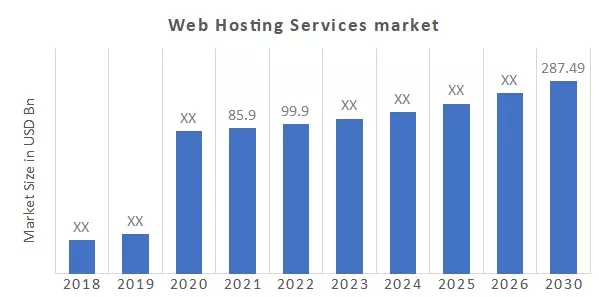
So, how can one discern the most suitable web hosting service? Beyond the apparent disparity in cost, what sets these two options apart? In the course of this article, we will address these inquiries comprehensively, shedding light on the distinguishing features of each category and highlighting the standout choices within them.
Definition of Free Hosting:

Free hosting is a web hosting service that provides individuals and businesses with server space to host their websites without any associated costs. It is a hosting option where users do not have to pay for server resources, making it an attractive choice for those seeking a budget-friendly or entry-level solution for their online presence.
How Free Hosting Works:
Free hosting works by allocating a portion of a hosting provider’s server resources to users at no charge. Here’s how it typically functions:
- Server Space Allocation: Hosting providers offering free hosting set aside a segment of their servers for users who opt for this type of service.
- Website Setup: Users sign up for a free hosting account and are usually provided with a subdomain or a subdirectory on the hosting provider’s primary domain. For example, if the hosting provider’s domain is “freehostingexample.com,” the user’s website URL might be “yourwebsite.freehostingexample.com.”
- Website Content: Users can create and upload their website’s content, including HTML files, images, and other multimedia elements, to the allocated server space.
- Access and Maintenance: Users can access their website through a web-based control panel provided by the hosting provider. They can make changes to their website, update content, and perform basic maintenance tasks.
- Server Resources: Free hosting plans typically come with limited server resources, including storage space, bandwidth, and processing power. Users must stay within these limitations to ensure their website remains accessible.
- Advertising: To offset the costs of providing free hosting services, hosting providers often display advertisements on users’ websites. These ads can vary in size and placement.
Popular Free Hosting Platforms:
Several popular free hosting platforms are widely used by individuals and small organizations. Some of the well-known ones include:
- WordPress.com: WordPress.com offers free hosting with easy-to-use website building tools. Users can create blogs and basic websites without technical expertise.
- Wix.com: Wix provides a free hosting option with a user-friendly website builder. It’s known for its drag-and-drop design capabilities.
- Weebly.com: Weebly offers a free hosting plan that allows users to create simple websites and online stores using a simple website builder.
- Blogger.com: Blogger is a free blogging platform by Google. Users can create and publish blogs with ease.
- 000WebHost.com: 000WebHost offers free web hosting with no ads. It’s suitable for users looking for a more ad-free experience.
Advantages of Free Hosting:
Free hosting offers several advantages, making it an attractive choice for specific use cases:
- Zero Cost: The most significant benefit is that it’s entirely free. Users don’t have to pay for hosting services, making it accessible to those on a tight budget.
- Ease of Setup: Free hosting platforms typically provide user-friendly website builders and templates, making it easy for beginners to create and launch their websites without coding knowledge.
- Entry-Level Solution: Free hosting is suitable for personal blogs, small projects, or individuals looking to experiment with website creation without committing to paid hosting.
- Quick Start: Users can get their websites up and running quickly, thanks to the simplified setup process.
Limitations of Free Hosting:
While free hosting offers cost savings and simplicity, it comes with several limitations that can impact a website’s growth and professionalism:
- Subdomains: Websites hosted for free often use subdomains provided by the hosting provider (e.g., yourwebsite.freehostingexample.com), which can appear less professional compared to a custom domain (e.g., yourwebsite.com).
- Limited Customization: Free hosting platforms may restrict customization options, limiting users’ ability to create unique and branded websites.
- Advertisements: To generate revenue, free hosting providers typically display ads on users’ websites. These ads can be distracting, affect the website’s aesthetics, and compromise user experience.
- Limited Resources: Free hosting plans often come with limited storage space, bandwidth, and server resources. This can lead to slow loading times, site downtime, and constraints on content expansion.
- Scalability Challenges: As websites grow, they may outgrow the limitations of free hosting. Migrating to a paid hosting plan becomes necessary for increased resources and capabilities.
- Less Control: Users have limited control over server configurations and may not have access to advanced features, databases, or server-side scripting.
Definition of Paid Hosting:
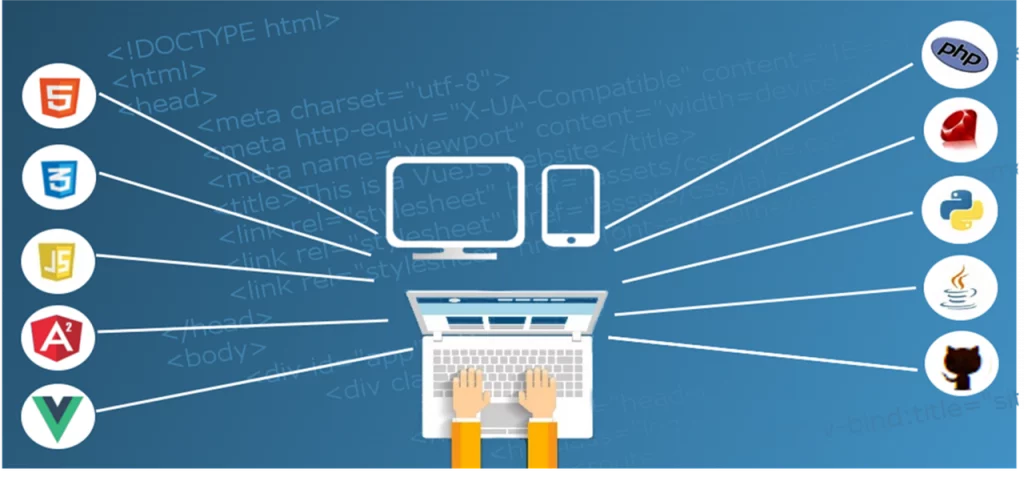
Paid hosting is a web hosting service in which individuals or businesses pay a hosting provider for server space, resources, and features to host their websites. Unlike free hosting, where hosting services are provided at no cost, paid hosting involves a financial investment to access a wide range of features and customization options for a more professional and robust online presence.
Key Features of Paid Hosting:
Paid hosting typically offers the following key features:
- Custom Domain: Users can register and use a custom domain name (e.g., yourwebsite.com) instead of a subdomain provided by the hosting provider. This enhances professionalism and brand identity.
- Full Customization: Paid hosting plans provide greater flexibility and control over website design, content, and functionality. Users can implement custom themes, plugins, and code modifications.
- Better Performance: Paid hosting often includes access to more server resources, such as increased storage, bandwidth, and processing power. This results in faster loading times and improved website performance.
- Reliability: Paid hosting providers typically offer higher uptime guarantees, ensuring that websites are accessible to visitors with minimal downtime.
- Technical Support: Users benefit from dedicated customer support with quick response times and assistance for technical issues or inquiries.
- Security: Paid hosting plans often include enhanced security measures, such as SSL certificates and regular backups, to protect websites and user data.
Reputable Paid Hosting Providers:
Nestify is a hosting provider that stands out for its exceptional features and tailored solutions, making it an excellent choice for a wide range of website needs.
One of Nestify’s standout features is its strong focus on WordPress integration. Whether you’re a beginner looking to set up your first website or a small business owner seeking reliable hosting, Nestify has you covered. With seamless WordPress integration, you can easily create and manage your WordPress-powered website, ensuring a smooth and hassle-free experience.
Customer support is another area where Nestify excels. They understand that hosting-related issues can be a roadblock for many website owners, and that’s why they offer excellent customer support. Whether you have a technical question or need assistance with a hosting-related problem, Nestify’s support team is there to help you every step of the way, ensuring that your website runs smoothly and efficiently.
Scalability is a key consideration for businesses of all sizes, and Nestify delivers in this aspect as well. They provide scalable hosting solutions that can grow with your business. Whether you’re just starting or have an established online presence, Nestify offers hosting plans that can accommodate your needs and allow you to scale up as your website traffic and requirements increase.
User-friendliness is another hallmark of Nestify’s hosting services. They provide intuitive tools and a user-friendly interface, making it easy for even those with limited technical expertise to manage their hosting environment effectively. Whether you need to install applications, manage your server settings, or perform routine maintenance, Nestify’s hosting platform is designed with simplicity in mind.
For those who prioritize speed, reliability, and customer support, Nestify offers business-class hosting services that check all the boxes. Your website’s loading speed and uptime are crucial factors for user satisfaction and search engine rankings, and Nestify understands the importance of delivering on these fronts. With a focus on speed and reliability, you can trust Nestify to keep your website performing at its best.
Lastly, Nestify caters to users with technical expertise as well. If you’re a developer or have advanced technical requirements, you’ll appreciate the developer-friendly features offered by Nestify. They provide the tools and flexibility needed for advanced customization and optimization, allowing you to fine-tune your hosting environment to meet your specific needs.
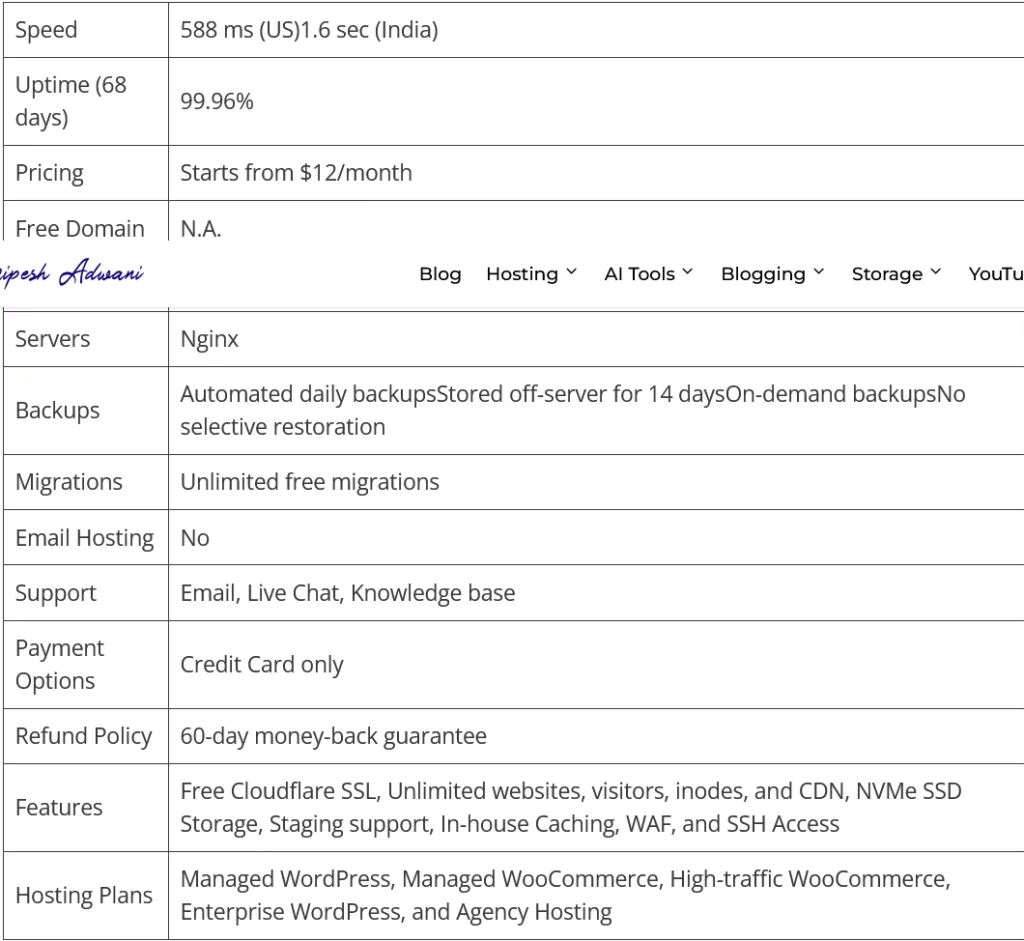
Advantages of Paid Hosting:
Paid hosting offers several advantages that make it an essential choice for certain scenarios:
- Custom Domains: Users can have a professional web address (e.g., yourwebsite.com), reinforcing brand identity and credibility.
- Full Customization: Paid hosting allows for complete control over website design, functionality, and content, enabling users to create unique and tailored websites.
- Better Performance: Increased server resources result in faster loading times, improved user experiences, and higher search engine rankings.
- Reliability: Paid hosting providers offer high uptime guarantees, ensuring that websites are accessible to visitors around the clock.
- Technical Support: Access to dedicated customer support helps resolve technical issues promptly, reducing website downtime.
- Security: Enhanced security measures protect websites from threats, safeguard user data, and build trust with visitors.
Scenarios Where Paid Hosting is Essential:
Paid hosting is essential in various scenarios, including:
- Business Websites: Businesses aiming to establish a professional online presence and offer e-commerce services require the reliability, customization, and support provided by paid hosting.
- E-commerce Stores: Online stores demand high performance, security, and scalability to handle transactions and accommodate growing product catalogs.
- Portfolio Websites: Creative professionals, such as photographers and designers, benefit from paid hosting to showcase their work with custom domains and tailored designs.
- Blogs and Content-Driven Sites: Bloggers and content creators looking to grow their audiences and maintain control over their content should consider paid hosting.
- Community Forums: Websites hosting active community forums or interactive features benefit from the resources and reliability of paid hosting.
Key Points of Difference Between Paid and Free Hosting:
1. Bandwidth and Storage Space
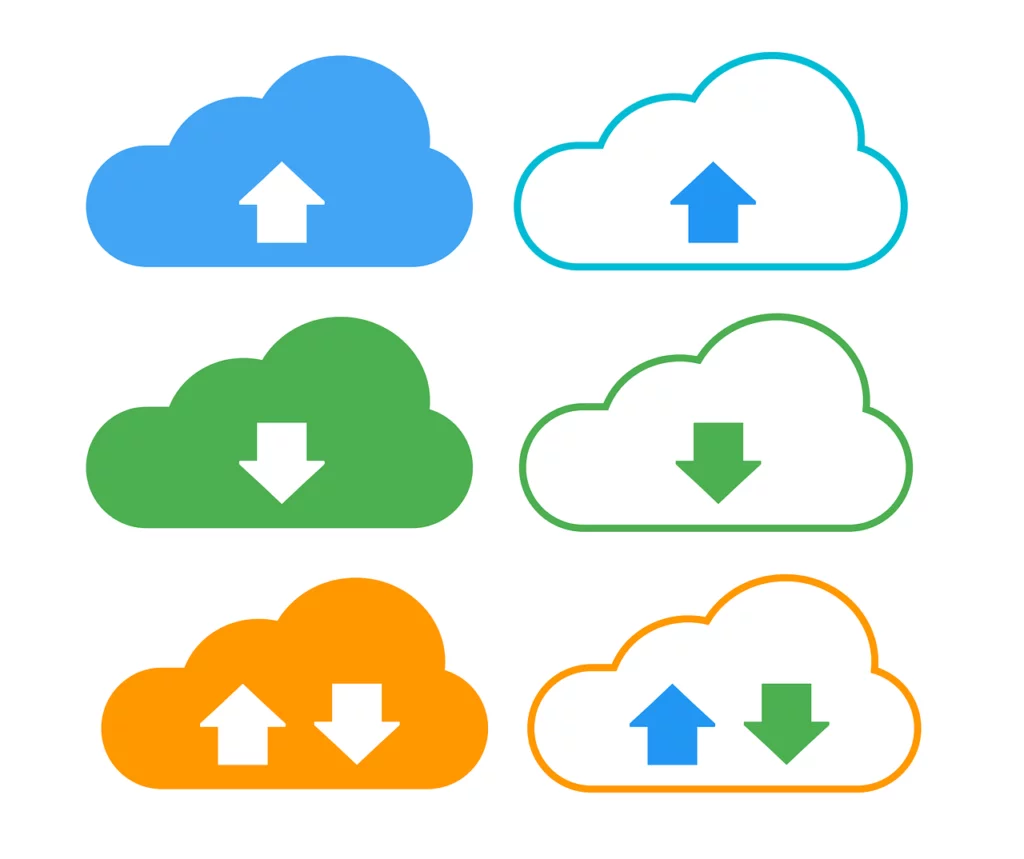
When selecting a web hosting plan, two critical factors often take center stage: bandwidth and storage space. These elements are pivotal in determining the performance and capabilities of your website. In this detailed overview, we’ll explore what bandwidth and storage space mean, compare their availability in free and paid hosting plans, provide real-world examples, and present a comparison chart for clarity.
Bandwidth and Storage Space Defined:
- Bandwidth: Bandwidth in web hosting refers to the amount of data your website can deliver to visitors over a specific timeframe. It essentially measures how much traffic your site can handle. Think of it as a highway’s capacity; the wider the highway (higher bandwidth), the more vehicles (visitors) it can accommodate without congestion.
- Storage Space: Storage space, on the other hand, represents the capacity on a server to store files, folders, databases, and all the content that makes up your website. It’s akin to the physical storage available on a computer’s hard drive.
Comparison: Free vs. Paid Web Hosting:
Paid Web Hosting:
- Bandwidth: Paid hosting plans typically offer generous or unlimited bandwidth, removing restrictions on data delivery to your site’s visitors. This allows your website to handle high traffic without slowing down, as long as you adhere to the hosting provider’s terms of service.
- Storage Space: Paid hosting plans often provide substantial or unlimited storage space. This means you can store all the files, images, videos, and data your website needs without worrying about hitting storage limits.
Free Web Hosting:
- Bandwidth: Free hosting plans often impose limitations on bandwidth. They throttle back data transfer rates to accommodate multiple customers and websites on a single server. Consequently, your website may struggle to serve content efficiently to a broader audience, potentially affecting user experience.
- Storage Space: Free hosting services may offer limited storage space. This restriction can hinder your ability to publish extensive content, particularly if your website includes resource-intensive elements like high-resolution images, music files, or databases.
Real-World Examples:
- Paid Hosting: Imagine you’re running an e-commerce site with a vast catalog of products. Paid hosting provides the necessary bandwidth to handle numerous concurrent visitors, ensuring smooth shopping experiences during peak seasons.
- Free Hosting: For a personal blog or portfolio website with minimal media content, free hosting can suffice. However, suppose you wish to host a photography portfolio with thousands of high-quality images. In that case, the constrained storage and bandwidth of free hosting might compromise your site’s performance.
Comparison Chart:
| Aspect | Paid Hosting | Free Hosting |
| Bandwidth | Generous to Unlimited | Limited, often throttled |
| Storage Space | Generous to Unlimited | Limited, can be insufficient |
| Ideal Use Cases | High-traffic websites, e-commerce | Simple blogs, basic portfolios |
| Resource-Intensive | Well-suited for resource-heavy sites | May struggle with media-rich sites |
| Cost | Monthly or annual subscription fees | No upfront cost, but limitations |
2. Features and Upgrades Potential
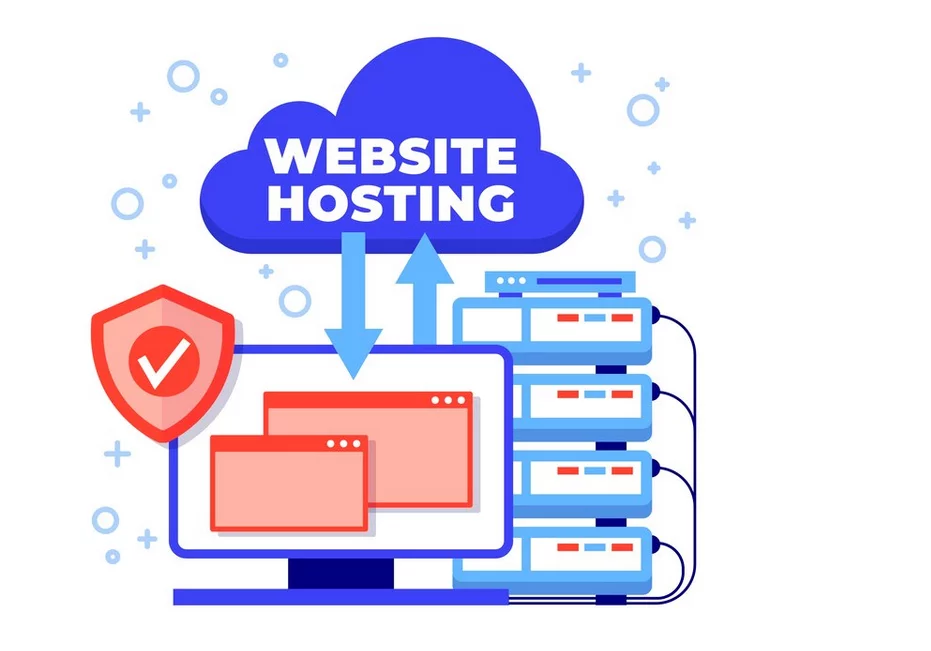
Free web hosting can be a great entry point, but it’s akin to arriving at an empty house. Providers offer free services with the hope that, once you’re inside, you’ll recognize the value of upgrading to a paid hosting plan that furnishes your digital home with essential features and capabilities.
Features of Free Web Hosting:
- Limited Website Count: Typically, free hosting restricts you to a single website. Expanding your online presence or experimenting with additional projects becomes challenging.
- Page and File Type Limitations: Free hosting often limits the number of pages and file types you can use. This can hinder your ability to create a diverse and content-rich website.
- Limited Control: Free hosting may not grant you server access or provide essential tools like cPanel. These features are crucial for tasks such as configuring backups, managing SSL certificates, installing content management systems like WordPress, and creating email addresses or FTP accounts.
Upgrading to Paid Hosting:
- Expanded Possibilities: Paid hosting plans offer a broader range of features and flexibility. You can host multiple websites, each with ample pages and diverse file types.
- Enhanced Control: Paid hosting typically provides greater control over server configurations through tools like cPanel. This empowers you to fine-tune your website’s performance and security.
- Advanced Features: Paid hosting plans often include advanced features like SSL certificate support, e-commerce capabilities, automatic backups, and more. These additions streamline website management and enhance user experience.
Comparison Chart:
Here’s a comparison chart that illustrates the key distinctions between free and paid web hosting:
| Aspect | Free Web Hosting | Paid Web Hosting |
| Website Count | Usually limited to one website | Allows hosting multiple websites |
| Page and File Limits | Restrictions on the number and types of pages/files | Offers greater flexibility for diverse content |
| Server Control | Limited access to server settings | Provides advanced control via tools like cPanel |
| Advanced Features | Basic features with limitations | Offers SSL support, e-commerce, backups, and more |
| Cost | No upfront cost | Requires a subscription fee for enhanced capabilities |
3. Domain Name and Branding

When it comes to web hosting, both free and paid services may offer the allure of a free domain name. However, there’s a pivotal distinction: Free hosting companies provide a domain with their name in the URL, known as a free subdomain.
Whether you opt for a reputable brand like WordPress or Joe Schmoe’s Free Website Hosting, your website’s address will typically include the host’s name, such as yourname.wordpress.com or yourname.joeschmoe.com. This arrangement can diminish your site’s credibility and professionalism.
Custom Domain Registration: To attain a distinct online identity, custom domain registration is often available as a paid upgrade. Yet, free hosts typically levy exorbitant fees in comparison to the domain treatment offered by paid hosting plans.
Comparison Chart:
Here’s a comparison chart outlining the key distinctions between free and paid web hosting concerning domain names:
| Aspect | Free Web Hosting | Paid Web Hosting |
| Domain Type | Free subdomain with host’s name in the URL | Custom domain options for unique branding |
| Branding and Credibility | Host’s name in the URL may diminish credibility | Custom domains enhance professionalism and trust |
| Custom Domain Costs | Typically exorbitant fees for custom domains | Often includes a free custom domain for a year, with affordable renewal options |
4. Privacy and Security

Privacy and security are not mere afterthoughts in web hosting; they are the bedrock of trust and confidence. Inadequate security practices can jeopardize not only your data but also the personal and financial information of your website visitors. Ensuring robust privacy and security measures is imperative to safeguarding your online presence.
Free Hosting Pitfalls:
One of the primary concerns with free hosting services is their approach to privacy and security. Some free hosts prioritize gathering user contact information for marketing purposes rather than prioritizing security. Even marginally more reputable free hosting brands may fall short in this critical area.
Real-World Example (Security Breach):
A stark illustration of security vulnerabilities in free hosting comes from a 2015 incident at 000webhost. This breach exposed over 13 million user records, including names, emails, and plain-text passwords. The list of vulnerabilities was alarming, encompassing unsecured login forms, unprotected admin areas lacking SSL encryption, password reminders sent via plain-text email messages, and data exposed in web server logs and browser histories.
Contrasting Measures in Paid Hosting:
Paid hosting providers, especially industry giants, prioritize security and privacy as fundamental components of their service. They invest significantly in safeguarding their infrastructure and reputations. These providers employ robust security protocols, SSL encryption, data encryption, regular security audits, and comprehensive privacy policies.
Comparison Chart:
Here’s a comparison chart highlighting the disparities in privacy and security between free and paid web hosting:
| Aspect | Free Web Hosting | Paid Web Hosting |
| Security Emphasis | Often lax security standards | Prioritizes stringent security measures |
| Privacy Concerns | May prioritize collecting user data | Adheres to privacy regulations and data protection |
| Security Breaches | Vulnerable to breaches and data leaks | Implements robust security measures to prevent breaches |
| Infrastructure | Limited investment in security | Significant investments in infrastructure security |
5. Performance and Reliability

The performance and reliability of a web hosting service can be the difference between a seamless online experience and frustrating downtime. These factors are at the core of a successful online presence. They dictate how quickly your website loads and how consistently it’s available to visitors. These factors profoundly influence user satisfaction and can impact your website’s success.
Free Hosting Limitations:
One of the drawbacks of free hosting plans is the scarcity of resources. These limitations severely curtail the hosting firepower required to efficiently deliver your website to a broad audience. Even if you manage to find a free platform with decent page load speed, you’re likely to encounter frequent scheduled downtime. This downtime is necessary to alleviate the strain on overloaded servers, which must accommodate multiple customers’ websites.
Paid Hosting Solutions:
Paid hosting providers prioritize performance and reliability. They leverage modern technologies, such as high-speed solid-state drives (SSDs), to deliver remarkable page load speeds. SSDs can provide page loads up to 20 times faster than traditional hard disk drives, enhancing user experiences.
Real-World Example (Reliability):
Leading hosting companies, like Nestify, demonstrate their commitment to reliability by showcasing uptime guarantees. These guarantees promise that your website will be available for almost the entire month, with minimal downtime. In the rare event of downtime exceeding their guarantees, you may even be eligible for a refund.

Comparison Chart:
Here’s a comparison chart illustrating the differences in performance and reliability between free and paid web hosting:
| Aspect | Free Web Hosting | Paid Web Hosting |
| Resource Constraints | Limited resources, leading to slow performance | Abundance of resources for faster, consistent performance |
| Scheduled Downtime | Frequent scheduled downtime for server maintenance | Minimal downtime with uptime guarantees |
| Use of Modern Technologies | Often outdated hardware and technology | Utilizes modern hardware like SSDs for superior performance |
| Uptime Guarantees | Rarely offers uptime guarantees | Provides uptime guarantees and potential refunds |
6. Search Engine Rankings and Optimization
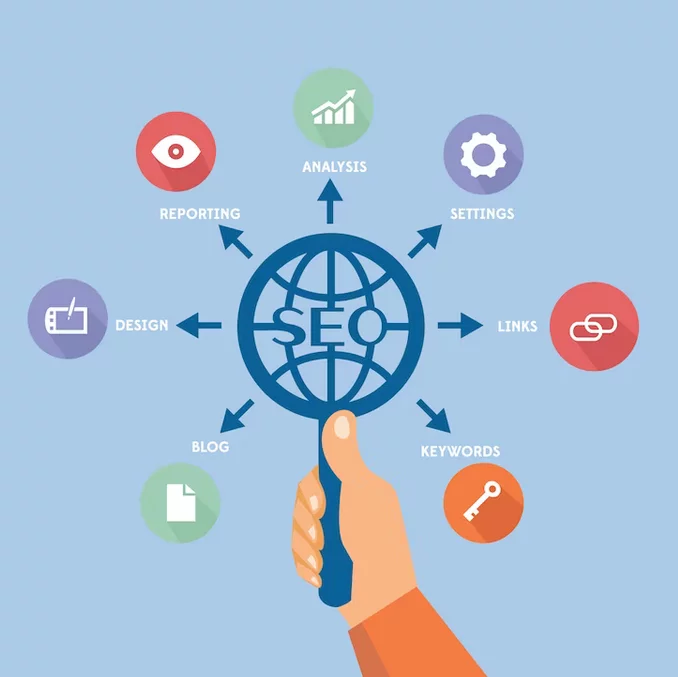
Search engine rankings and optimization are critical factors in determining the visibility and success of your website. Achieving a high position in search engine results can significantly enhance your online presence and attract valuable organic traffic.
Free Hosting Pitfalls:
Free hosting services often present a range of challenges in the realm of search engine rankings and optimization. Slow page loading times, a common issue with free hosting, can hinder website traffic and impact your search engine ranking.
Consider a scenario where you’ve chosen a free hosting provider for your e-commerce website. Slow page loads due to resource constraints not only frustrate visitors but also harm your search engine rankings. Google, in particular, has included site speed as a ranking factor since 2010, underscoring its significance in determining search engine visibility.
- Ads and Relevance Concerns: Free web hosting providers often generate revenue by displaying ads on your website, regardless of their relevance to your content. These ads can undermine the professionalism and user experience of your site. Additionally, free hosting platforms may host dubious or spammy websites, further affecting your site’s reputation in the eyes of search engines. Imagine your website focuses on providing educational content. However, ads displayed by your free hosting provider promote unrelated products or services. This disconnect can confuse visitors and tarnish the credibility of your site, potentially leading to higher bounce rates and decreased search engine rankings.
Paid Hosting Solutions:
Reputable paid hosting providers prioritize search engine rankings and optimization. They invest in the infrastructure necessary to ensure fast page loads, enhancing user experience and search engine performance.
Real-World Example (Optimization Advantage):
A paid hosting plan with robust optimization features enables you to tailor your website’s content and structure for search engines. This includes optimizing meta tags, improving site structure, and implementing SEO best practices. These efforts can elevate your site’s search engine rankings and drive organic traffic.
Comparison Chart:
Here’s a comparison chart illustrating the distinctions in search engine rankings and optimization between free and paid web hosting:
| Aspect | Free Web Hosting | Paid Web Hosting |
| Page Loading Speed | Often slow due to resource limitations | Faster page loads with optimized infrastructure |
| Impact on Search Engine Rankings | Slower page loads can negatively affect rankings | Prioritizes site speed and optimization for higher rankings |
| Ads and Relevance Concerns | Irrelevant ads may detract from site professionalism | Offers ad-free hosting and the ability to control ad content |
| Optimization Features | Limited optimization capabilities | Robust optimization tools and resources for SEO improvement |
7. Technical Support and Assistance

In the world of web hosting, technical support serves as your lifeline when things go awry. It’s the assurance that skilled professionals are ready to assist you when issues arise, ensuring the smooth operation of your website.
Drawbacks of Free Hosting:
One of the notable drawbacks of free hosting services is the lack of robust technical support. Many free hosts may offer limited or unreliable support options, such as community forums or seldom-answered email addresses. The absence of adequate support can leave you stranded when facing technical challenges.
Imagine you encounter a critical issue with your website hosted for free. You attempt to seek assistance through a community forum, but your question goes unanswered for days, causing significant downtime and potential business losses.
Paid Hosting Solutions:
Reputable paid hosting providers prioritize technical support and assistance as integral components of their service. They invest in building a support team comprising hundreds or thousands of skilled customer service agents located worldwide. These professionals are accessible via phone, chat, or email ticket, ensuring prompt and effective assistance.
Real-World Example (Support Excellence):
A paid hosting plan grants you access to a global team of support agents with certifications in top hosting technologies. They possess the expertise to swiftly resolve technical issues, minimizing downtime and disruptions to your online operations. Some support agents even contribute to open-source projects like WordPress, showcasing their dedication to industry excellence.
Comparison Chart:
Here’s a comparison chart highlighting the disparities in technical support and assistance between free and paid web hosting:
| Aspect | Free Web Hosting | Paid Web Hosting |
| Support Accessibility | Limited and unreliable support options | 24/7 access to a global team of skilled agents |
| Response Time | Delays in receiving assistance | Prompt and efficient resolution of technical issues |
| Expertise and Certifications | Lack of specialized expertise | Certified professionals with deep technical knowledge |
| Self-Help Resources | Limited self-help resources | Extensive knowledge bases, articles, and video tutorials |
Conclusion:
Choosing between free and paid hosting depends on your specific needs and goals. Free hosting can be a good option for personal websites, blogs, or small projects with minimal traffic and budget constraints. However, it comes with limitations such as ads, limited resources, and less reliability.
On the other hand, paid hosting offers a wide range of benefits, including better performance, reliability, customer support, customization options, and scalability. It’s the preferred choice for businesses, e-commerce sites, and any website that requires optimal performance and security.
In the end, the decision should align with your website’s purpose, growth potential, and budget. Assess your requirements and evaluate the trade-offs between free and paid hosting to make an informed choice.
FAQs on Free Vs. Paid Hosting:
Are there any hidden costs with free hosting?
Some free hosting providers may include hidden costs or limitations that become apparent as your website grows. It’s essential to read the terms and conditions carefully.
Can I get a custom domain with free hosting?
Some free hosting services offer custom domains, but they often come with restrictions or additional costs. Paid hosting provides more flexibility in choosing and configuring custom domains.
What level of customer support can I expect with free hosting?
Free hosting typically offers limited customer support options. Paid hosting plans usually include more comprehensive and responsive customer support.
Which hosting option is better for a small business website?
For a small business website, it’s recommended to invest in paid hosting. It ensures better performance, reliability, and the ability to customize and scale as your business grows.



